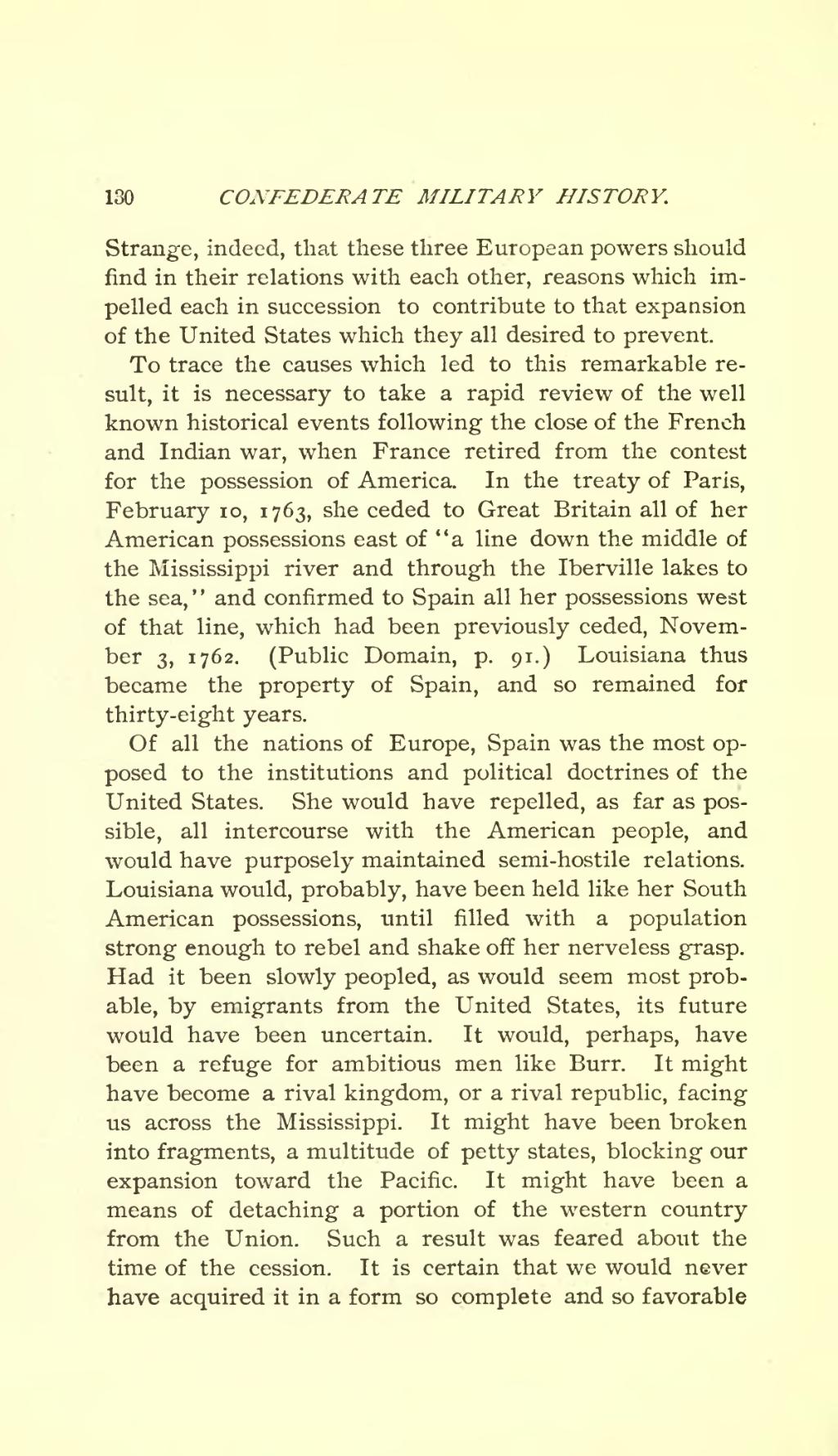Strange, indeed, that these three European powers should find in their relations with each other, reasons which impelled each in succession to contribute to that expansion of the United States which they all desired to prevent.
To trace the causes which led to this remarkable result, it is necessary to take a rapid review of the well known historical events following the close of the French and Indian war, when France retired from the contest for the possession of America. In the treaty of Paris, February 10, 1763, she ceded to Great Britain all of her American possessions east of "a line down the middle of the Mississippi river and through the Iberville lakes to the sea," and confirmed to Spain all her possessions west of that line, which had been previously ceded, November 3, 1762. (Public Domain, p. 91.) Louisiana thus became the property of Spain, and so remained for thirty-eight years.
Of all the nations of Europe, Spain was the most opposed to the institutions and political doctrines of the United States. She would have repelled, as far as possible, all intercourse with the American people, and would have purposely maintained semi-hostile relations. Louisiana would, probably, have been held like her South American possessions, until filled with a population strong enough to rebel and shake off her nerveless grasp. Had it been slowly peopled, as would seem most probable, by emigrants from the United States, its future would have been uncertain. It would, perhaps, have been a refuge for ambitious men like Burr. It might have become a rival kingdom, or a rival republic, facing us across the Mississippi. It might have been broken into fragments, a multitude of petty states, blocking our expansion toward the Pacific. It might have been a means of detaching a portion of the western country from the Union. Such a result was feared about the time of the cession. It is certain that we would never have acquired it in a form so complete and so favorable
